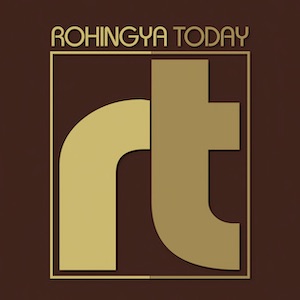
The Rohingya National Charter
This Charter has been adopted with the resolutions taken in a “Rohingya National Convention” of the Rohingya representatives worldwide held on 13th February 2022.
Article 1
The Rohingya are one of the major indigenous peoples of Arakan; they are an ethnic nationality of the Union of Myanmar as well as an integral part of the Myanmar’s ethnically diverse society.
Article 2
The “Rohingya Movement” is a struggle to achieve the “right of self-determination” of the Rohingya people. It is also to safeguard their Rohingya identity and develop their group consciousness of that identity and oppose any plan that may dissolve or impair it.
Article 3
Rohingya people ascribe to:
(a) The territorial integrity and sovereignty of the Union of Myanmar.
(b) An indivisible Arakan State and the Rohingya are to exist as equals in it.
(c) An inclusive and Federal Democratic Union of Myanmar.
(d) The recognition and protection of the rights of ethnic minorities, including their culture, education, freedom of worship, and political and human rights.
(e) Peaceful co-existence on the principle of ‘unity in diversity’.
(f) Peaceful resolution of conflicts and political problems by political means through mutual respect, recognition, dialogue, negotiation in good faith and accommodation.
(g) Universal suffrage.
Article 4
The Rohingya people inhabit Arakan. The contiguous area between the River Kaladan and River Naf bordering Bangladesh is the Traditional Homeland of Rohingya.
Article 5
The Rohingya people possess the legal right to their homeland and have the right to determine their destiny in accordance with their wishes and entirely of their own accord and will, within the federal union of Myanmar.
Article 6
The Rohingya diasporas including the refugees have the right of return to their historical homeland of Arakan in full security through sustainable repatriation, rehabilitation, and reintegration.
Article 7
The Rohingya identity is a genuine, essential, and inherent characteristic; it is transmitted from parents to children. The dispersal of the Rohingya people, through the disasters which befell them, does not make them lose their Rohingya identity and their membership in the Rohingya community, nor do they negate them.
Article 8
Preservation, protection and promotion of Rohingya’s religious identity, cultural heritage and historicity without prejudice to the preservation, protection and promotion of other religious and indigenous cultures in Arakan.
Article 9
The Rohingya people, whether they are residing in the homeland or in diasporas constitute one national front. They have material, spiritual, and historical connections with Arakan are indisputable facts. All means of information, education and training must be adopted in order to build and improve capacity and consciousness of Rohingya community and to acquaint them with their homeland, history and culture in the most profound manner.
Article 10
Rapprochement and cooperation with the Rakhine sister community for the sake of future generations of Arakan; and to work together with all democratic forces and ethnic nationalities of the Union of Myanmar in the interest of the whole people of the country.
Article 11
Support the rights of Rohingya women and girls to education, health and economic empowerment, including political participation, in a new atmosphere of utmost respect and absolute safety and security.
Article 12
The Rohingya people believe in the principles of justice, freedom, federalism, self-determination, human dignity, and in the right of all peoples of Myanmar to exercise them.
Article 13
Work together with all Muslim leaders of Myanmar for better protection for the Muslim minorities and communities in Myanmar.
Article 14
The Rohingya genocide that happened in August 2017 is the last step in the continuity of destruction that began decades ago, largely from 1962 military takeover in Myanmar. August 25 is a most memorable day for us, for our people and for our generations to come as “the Rohingya Genocide Day”.
Article 15
Myanmar is continuing to fail in its obligations to take any of the prescribed genocide against the Rohingya people (as a protected group) despite the order of the International Court of Justice (ICJ). Persistent efforts to explore ways and means to stop the ongoing mass atrocity crimes -- including genocide, ethnic cleansing, human rights violations and abuses -- against the Rohingya people.
Article 16
Credible accountability efforts to ensure victims see justice served and the cycle of violence is not repeated. All perpetrators must be brought to justice. This includes referring the situation in Myanmar to the International Criminal Court (ICC) and other international tribunals. The world needs to show that it is not ready to tolerate such barbaric acts.
Article 17
Rohingya seek support and encouragement of all Myanmar’s neighbours. For decades the neighbouring Bangladesh has to bear the brunt of Rohingya oppression. The Rohingya people are appreciative of all the peoples and the governments for providing food and shelter to bulk of their refugees on humanitarian grounds for a long period of time.
Article 18
Cooperate with and enlist the support of the international community, the UN, OIC, EU, ASEAN and other regional cooperation, NGOs, human rights and humanitarian organizations towards improving the living condition of the Rohingya and finding a permanent solution to the Rohingya crisis.
Article 19
This Charter shall not be amended save by vote of a two-thirds majority of the total membership of the Consultation Meeting of the Rohingya representatives at a special session convened for that purpose.
For more information, please contact:
Tun Khin: +447888714866
Nay San Lwin: +4917662139138
Dr. Hla Myint: +61423381904








